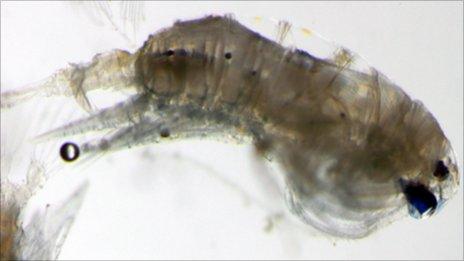Drifting crustaceans could slow climate change
- Published
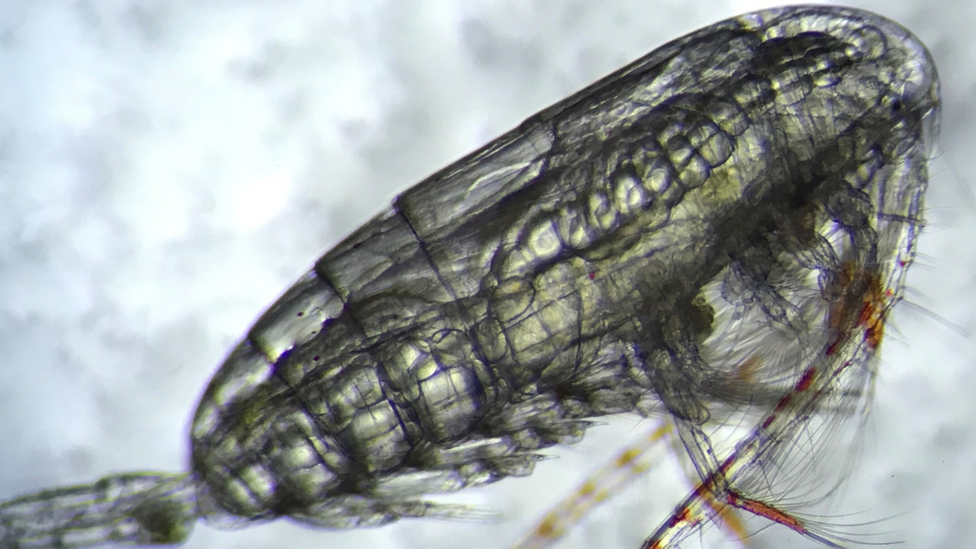
The calanus finmarchicus (pictured) is a copepod that is said to play a crucial role in the ecosystems of the North Atlantic and Arctic oceans
An army of drifting crustaceans could slow climate change, scientists at the University of Exeter have said.
Zooplankton (drifting animals), includes copepods - tiny crustaceans thought to be the most numerous multi-celled organisms on Earth.
It is the copepods that scientists believe "may help to store enormous amounts of carbon in the ocean".
They believe that copepods keep carbon out of the atmosphere and could slow climate change.
As a result, three new projects have been funded by the Natural Environment Research Council (NERC) BIO-Carbon programme to investigate it.
"The global ocean is absolutely teeming with living organisms, many of which are difficult or impossible to see with the naked eye," said Prof Daniel Mayor
"But don't be fooled by their size - these tiny but mighty life forms play a crucial role in regulating Earth's climate by moving carbon out of the atmosphere and shunting it down into the deep ocean where it says for hundreds of years or more."
The scientists will examine how the animals influence the ways in which the ocean absorbs atmospheric carbon dioxide.
Recent evidence suggested climate models are not fully accounting for the impact of marine organisms - and this could hinder predictions of the ocean's role in future carbon storage.
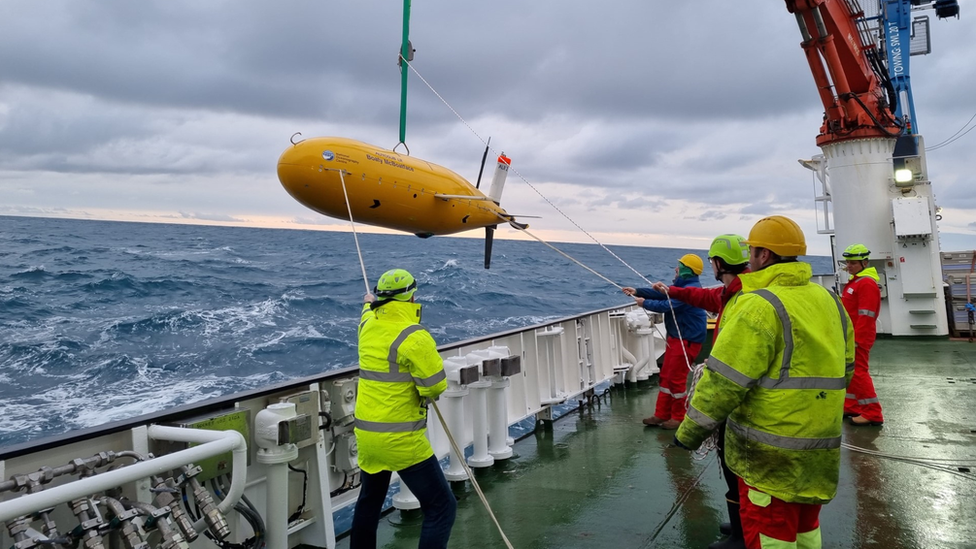
The underwater vehicle Boaty McBoatface will be used to help gather data in the new research
They will also look at sick and virally infected cells and the impact of viral infection on global carbon cycling.
Dr Adrian Martin, from the National Oceanography Centre, said: "With countries striving for net-zero carbon and debate ongoing over whether we can use the ocean to remove excess carbon dioxide from the atmosphere, the need to understand how the ocean stores carbon has never been stronger and we know that marine life plays an important role."
The National Oceanography Centre's famous unmanned autonomous vehicle Boaty McBoatface will be used to gather data.

Follow BBC News South West on Twitter, external, Facebook, external and Instagram, external. Send your story ideas to spotlight@bbc.co.uk, external.
- Published11 March 2017
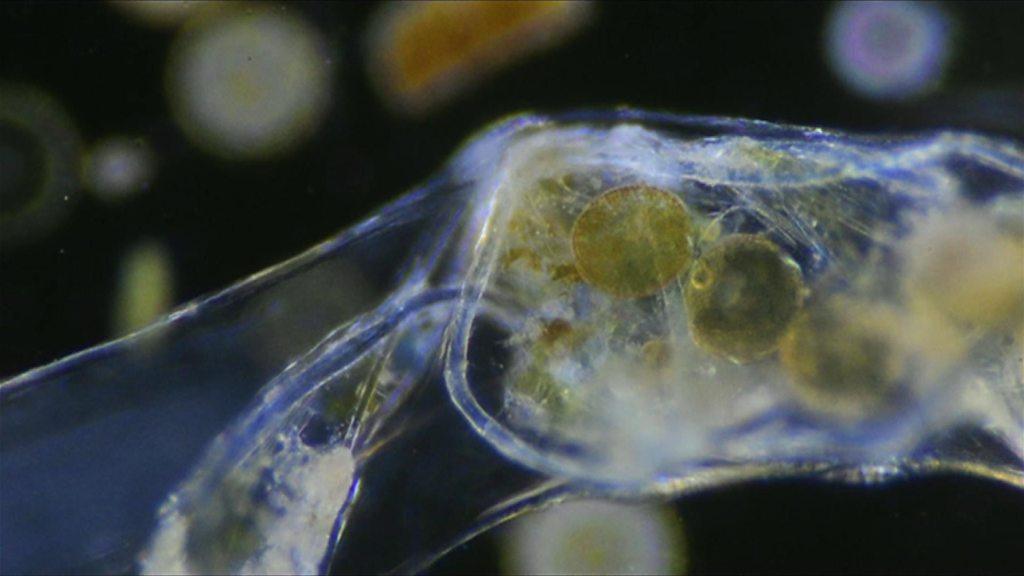
- Published6 May 2016
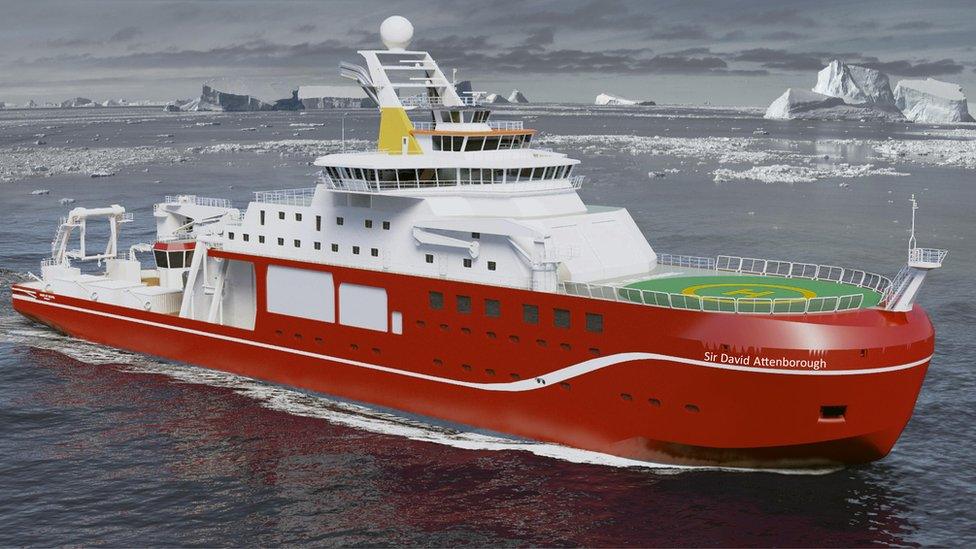
- Published21 March 2012
